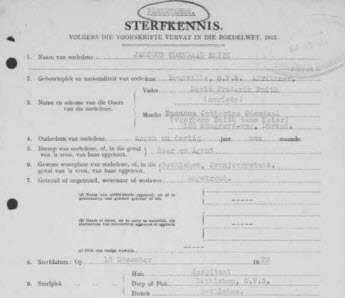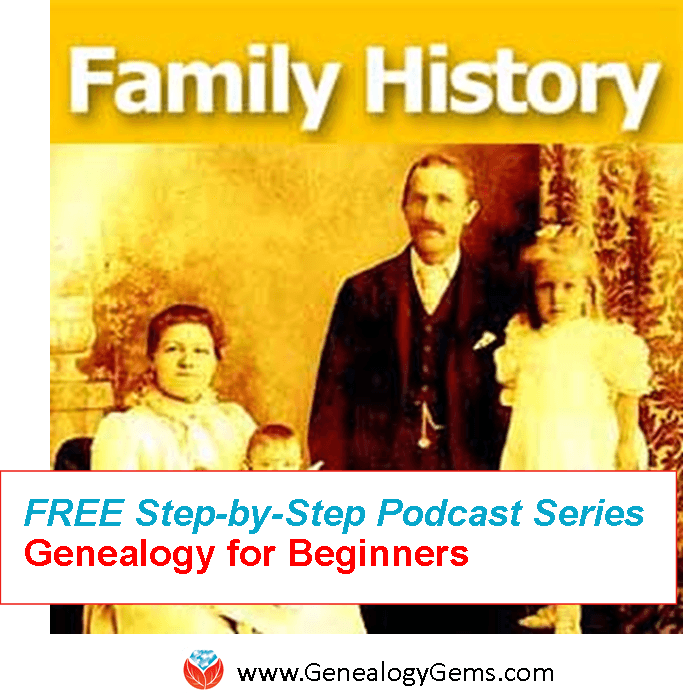by Lacey Cooke | Jun 16, 2019 | 01 What's New, Records & databases
Featured this week are new and updated records for South Africa. The all-free site FamilySearch has two new and one updated collection for South Africa including death and probate records and passenger lists. Ancestry.com also has an updated collection of church records going back to the 17th century. Also new at Ancestry.com are four genealogy records collections for Essex, England.

Featured: South Africa Genealogy Records
If you have ancestors that lived in South Africa, you may already be familiar with some of the challenges of researching them. And if you’re new to genealogy or to your ancestors that lived in South Africa, you might be in for a surprise when it comes to records: census records aren’t available! They are routinely destroyed after being abstracted and thus not available to the public.
So where’s the best place to start looking? Most genealogy experts will tell you to start with death notices. A death notice is different than a death certificate, in that it’s not an official document. Rather, it is a document provided by next of kin, friends, or associates of the deceased. Information provided may not be 100% accurate or reliable, but it can often provide really helpful details and a glimpse into the person’s life.
FamilySearch as a new collection of South Africa, Orange Free State, Probate Records from the Master of the Supreme Court, 1832-1989. There are over 300,000 records in this set, and the most useful records in the collection are the death notices, which give detailed information. The probate records usually have multiple pages and are included in a probate file, which is identified by a probate number.

When a person died, the nearest relative or other connection should have completed a death notice and sent it to the Master of the High Court within 14 days of the death. These records might tell you the deceased’s name, birthdate and place, marriage status, parents’ names, the names of their children, information about property and wills left, and more.
There is an updated collection of actual death certificates at FamilySearch, which is the
Transvaal, Civil Death, 1869-1954 collection. “Death certificates are arranged chronologically and alphabetically by place and include full name, parent’s name if under the age of ten, mother’s residence, age, sex, birthplace, marital status, occupation, whether pensioner or pensioner’s dependent, place and date of death, residence, place of burial, cause and duration of death, and background of informant. For the years 1899-1902, records are arranged separately by internment camp and district where death occurred.”
If you’re an Ancestry.com subscriber, you can also check out the recently updated collection of
Dutch Reformed Church Registers, 1660-1970. This collection contains records from various locations which were part of historic Cape Colony, including Namibia, Cape of Good Hope province and Transvaal province. Record coverage will vary depending on location. It is also available at
FamilySearch.
Essex, England
Ancestry.com has four new collections of genealogy records for Essex, England. These BMD records date back as far as the 16th century and may hold important details about the lives of your ancestors living in Essex.
Church of England Births and Baptisms, 1813-1918: “Children were usually baptised within a few days or weeks of birth. The records generally include when the baptism took place and in what parish, child’s Christian name, parents’ given names and the family surname, residence, father’s occupation, and who performed the ceremony. Sometimes you’ll find additional details such as date of birth. Early records may contain less detail.”
Church of England Marriages, 1754-1935: “Couples were usually married in the bride’s parish. Marriage records typically include the bride and groom’s names, residence, date and location of the marriage, names of witnesses, condition (bachelor, spinster, widow, or widower) and the name of the officiant. Some records may also include the father’s name and occupation.”
Church of England Deaths and Burials, 1813-1994: “Burials took place within a few days of death. Records generally list the name of the deceased, residence, burial date, and age at death.”
Church of England Baptisms, Marriages and Burials, 1538-1812: “This collection contains images of Church of England parish registers of baptisms and burials during the years 1538–1812, and marriages during the years 1538-1754 from Essex, England.”
Get more new and updated records every week!
 Each week we round up the new and updated genealogy records collections for you in a helpful article so you can jump right into researching! Our free weekly email newsletter always has the latest records round up article, as well as other featured articles on genealogy methodology, inspiration, tips and tricks, and more. Plus the newsletter also lets you know where there is a new episode of The Genealogy Gems Podcast, new videos, and updates on news and events. And best of all it’s free! Sign up today to get our email newsletter once a week in your inbox.
Each week we round up the new and updated genealogy records collections for you in a helpful article so you can jump right into researching! Our free weekly email newsletter always has the latest records round up article, as well as other featured articles on genealogy methodology, inspiration, tips and tricks, and more. Plus the newsletter also lets you know where there is a new episode of The Genealogy Gems Podcast, new videos, and updates on news and events. And best of all it’s free! Sign up today to get our email newsletter once a week in your inbox.

About the Author: Lisa Louise Cooke is the producer and host of the Genealogy Gems Podcast, an online genealogy audio show and app. She is the author of the books The Genealogist’s Google Toolbox, Mobile Genealogy, How to Find Your Family History in Newspapers, and the Google Earth for Genealogy video series. She is an international keynote speaker and the Vice President of the Genealogical Speakers Guild.
Disclosure: This article contains affiliate links and Genealogy Gems will be compensated if you make a purchase after clicking on these links (at no additional cost to you). Thank you for supporting Genealogy Gems
by Lisa Cooke | Apr 15, 2014 | 01 What's New, Beginner, Family History Podcast, Newspaper

Listen to the Family History: Genealogy Made Easy podcast by Lisa Louise Cooke. It’s a great series for learning the research ropes and well as refreshing your skills.
Family History: Genealogy Made Easy Podcast
with Lisa Louise Cooke
Republished April 15, 2014
https://lisalouisecooke.com/familyhistorypodcast/audio/fh27.mp3
Download the Show Notes for this Episode
Welcome to this step-by-step series for beginning genealogists—and more experienced ones who want to brush up or learn something new. I first ran this series in 2008-09. So many people have asked about it, I’m bringing it back in weekly segments.
Episode 27: Find Your Family History in Newspapers, Part 1
Newspapers offer such a unique perspective on history in general, and our ancestors specifically. You can find everything from birth, marriage and death announcements, to school and club event, crime stories, land transactions, sports activities and just about any other activity that your ancestors were part of that made the news. So let’s get started and “Read all about it!”
In this episode, you’ll hear from Jane Knowles Lindsey at the California Genealogical Society. She is currently the president there and often teaches on this subject. Our conversation on newspaper research continues in next week’s episode!
Here are some take-away thoughts from this episode, along with some updates:
- Determine which newspapers existed for your ancestor’s hometown and time period. Look for ethnic and neighborhood papers, too. The most comprehensive U.S. newspaper directory is at Chronicling America. This site does let you search by language, ethnic background, labor group and more.
- Look for these newspapers at digitized newspaper sites, starting with the free ones. In the U.S., this means starting with Chronicling America and state digital newspaper project sites (search on the state name and “digital newspapers”). These sites came out of the government digitizing program mentioned in the show.
- Digitized newspaper searching is done with OCR (optical character recognition), which doesn’t pick up everything in tough-to-read historical print. Try searching with different spellings, a first name in a particular timeframe, or other people or terms that may have been mentioned.
- Ancestry has put lots of newspapers on their website—but not everything, and for only limited time periods. Notice what time period is covered for a specific newspaper. Ancestry has since launched Newspapers.com.
- If you’ve found the name of a newspaper that probably covered your family, but you haven’t found it digitized, search the name of the newspaper in your favorite web browsers. Most newspapers are on microfilm somewhere and web directories will likely list holdings. Also, some newspapers have also been indexed on USGenWeb or other sites.
- State archives and libraries are often a great resource for newspapers. Local libraries may have unique clippings files or scrapbooks.
- Several websites and databases now focus on obituary content. You can target a search for these.
I loved this topic so much I ended up writing a book on it! How to Find Your Family History in Newspapers walks you through the process of finding and researching old newspapers. You’ll find step-by-step instructions, worksheets and checklists, tons of free online resources, websites worth paying for, location-based newspaper websites and a case study that shows you how it’s done.
6 Top Newspaper Research Resources
Some of the digital newspaper collections mentioned in the episode are available by library subscription, like The Early American Newspapers collection the and 19th century Newspaper Collection from The Gale Group. Check with your local library.
GenealogyBank
Godfrey Memorial Library
New England Historic Genealogical Society (by subscription only)
Newspapers.com
Ancestry.com
British Newspaper Archive
Small Town Papers
USGenWeb
by Lisa Cooke | Jan 15, 2015 | 01 What's New, Ancestry, Beginner, FamilySearch, Findmypast, MyHeritage, Records & databases
Bill Johnson in Manassas, Virginia, USA, wrote to me with this question–and I know he’s not the only one asking it!

“It’s difficult to know what genealogical resources to spend your money on. I have been a subscriber to Ancestry.com (world package) for years. But, there is FindMyPast, MyHeritage, etc. Your books identify dozens of other resources that all sound good — and cost money. Then there are some of the free resources like the National Archives and the LDS resources [FamilySearch]. Where should you spend your time and money? While money is always a factor, I find that my time is a more precious resource. If I have Ancestry.com, would I gain anything by subscribing to FindMyPast? MyHeritage? FamilySearch? The National Archives or the BLM sites? I am concerned about wasting money on redundancy. Why visit a site that only offers a select subset of the data that I access through Ancestry?
Which paid sites do you regularly use? Which free sites do you use? Your books have a plethora of suggestions but the pool of resources is increasing by the day. It is really getting rather confusing.”
What a great question!!! Here’s my answer:
“I agree, it’s gotten more complicated selecting the best genealogy websites for your own needs. I will take a look at covering this more in depth in a future podcast episode. I do have a few ideas for you right now.
It’s really about accessing the right website (or tool) for the task.
- For general depth of records I turn first to Ancestry.com (you only need the world edition if you need records outside of the U.S.), and then FamilySearch.org. With Ancestry.com, I make sure I use the card catalog and search by location tool (scroll down to the map) so I’m not missing all the record sets that don’t automatically jump to the top of the general search results. FamilySearch is free, so I check its online resources EVERY TIME I have a question. I check both browsable and indexed content (from the main screen, click Search, then Records, then scroll down and click Browse all Published Collections (or click to that screen here). You’ll be able to choose a location and see all content they have and whether it’s been indexed or you just have to browse through it (like reading microfilm, only online).
- For me personally, I was slow to warm up to MyHeritage because I just wasn’t sure how it would best help me. Once I embraced it and posted my tree, its strength in my research became clear: for the first time ever I connected with a distant cousin in the “old country” (Germany)! The international user base of MyHeritage stands above other sites. And the fact that you can create your own family site on MyHeritage makes it a great ongoing resource for staying connected. (Disclosure: MyHeritage is a sponsor of the Genealogy Gems podcast. However, that is because of the value I came to experience in my own research as I just mentioned.)
- When I am focused on my husband’s British roots I head to FindMyPast and pay as I go as needed.
 Our mission here at Genealogy Gems is to reveal innovative ways of using the myriad of tech tools so you’ll know you can turn to them only when you need them. Think of it as a toolbelt. The right tool for the right job! But I also only bring tech tools and websites to the podcast and my website that I believe are worthwhile. Believe it or not, I weed a lot of them out!
Our mission here at Genealogy Gems is to reveal innovative ways of using the myriad of tech tools so you’ll know you can turn to them only when you need them. Think of it as a toolbelt. The right tool for the right job! But I also only bring tech tools and websites to the podcast and my website that I believe are worthwhile. Believe it or not, I weed a lot of them out!
I hope that helps, and I wish you great genealogical success!” Lisa


 Each week we round up the new and updated genealogy records collections for you in a helpful article so you can jump right into researching! Our free weekly email newsletter always has the latest records round up article, as well as other featured articles on genealogy methodology, inspiration, tips and tricks, and more. Plus the newsletter also lets you know where there is a new episode of The Genealogy Gems Podcast, new videos, and updates on news and events. And best of all it’s free! Sign up today to get our email newsletter once a week in your inbox.
Each week we round up the new and updated genealogy records collections for you in a helpful article so you can jump right into researching! Our free weekly email newsletter always has the latest records round up article, as well as other featured articles on genealogy methodology, inspiration, tips and tricks, and more. Plus the newsletter also lets you know where there is a new episode of The Genealogy Gems Podcast, new videos, and updates on news and events. And best of all it’s free! Sign up today to get our email newsletter once a week in your inbox.




 Our mission here at Genealogy Gems is to reveal innovative ways of using the myriad of tech tools so you’ll know you can turn to them only when you need them. Think of it as a toolbelt. The right tool for the right job! But I also only bring tech tools and websites to the podcast and my website that I believe are worthwhile. Believe it or not, I weed a lot of them out!
Our mission here at Genealogy Gems is to reveal innovative ways of using the myriad of tech tools so you’ll know you can turn to them only when you need them. Think of it as a toolbelt. The right tool for the right job! But I also only bring tech tools and websites to the podcast and my website that I believe are worthwhile. Believe it or not, I weed a lot of them out!